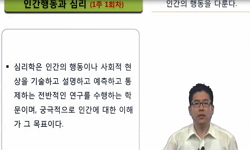Background and Purposes: Over the past three decades, numerous studies performed in Korea have reported that job stress is a determinant risk factor for chronic diseases and work disability. Every society has its own culture and occupational climate p...
http://chineseinput.net/에서 pinyin(병음)방식으로 중국어를 변환할 수 있습니다.
변환된 중국어를 복사하여 사용하시면 됩니다.
- 中文 을 입력하시려면 zhongwen을 입력하시고 space를누르시면됩니다.
- 北京 을 입력하시려면 beijing을 입력하시고 space를 누르시면 됩니다.
https://www.riss.kr/link?id=A342847
-
저자
장세진 (연세대학교 원주의과대학 예방의학교실 및 직업의학연구소) ; 고상백 (연세대학교 원주의과대학 예방의학교실 및 직업의학연구소) ; 강동묵 (부산대학교 의과대학 예방의학 및 산업의학교실) ; 김성아 (포천중문의과대학 구미차병원 산업의학교실) ; 강명근 (조선대학교 의과대학 예방의학교실) ; 이철갑 (조선대학교 의과대학 산업의학교실) ; 정진주 (한국여성개발원) ; 조정진 (한림대학교 평촌병원 가정의학과) ; 손미아 (강원대학교 의과대학 예방의학교실) ; 채창호 (마산삼성병원) ; 김정원 (인제대학교 부산백병원 산업의학과) ; 김정일 (동아대학교 의과대학 산업의학교실) ; 김형수 (건국대학교 의과대학 예방의학교실) ; 노상철 (단국대학교 의과대학 산업의학교실) ; 박재범 (아주대학교 의과대학 예방의학교실) ; 우종민 (인제대학교 서울백병원 신경정신과 및 스트레스연구소) ; 김수영 (을지대학교 의과대학 예방의학교실) ; 김정연 (이화여자대학교 의과대학 예방의학교실) ; 하미나 (단국대학교 의과대학 예방의학교실) ; 박정선 (한국산업안전공단 산업안전보건연구원) ; 이경용 (가톨릭대학교 의과대학 예방의학교실 및 산업의학센타) ; 김형렬 (강원대학교 대학원) ; 공정옥 (한양대학교 의과대학 산업의학교실) ; 김인아 (서울대학교 의과대학 예방의학교실) ; 김정수 (연세대학교 원주의과대학 예방의학교실 및 직업의학연구소) ; 박준호 (연세대학교 원주의과대학 예방의학교실 및 직업의학연구소) ; 현숙정 (연세대학교 원주의과대학 예방의학교실 및 직업의학연구소) ; 손동국 (서울특별시)
- 발행기관
- 학술지명
- 권호사항
-
발행연도
2005
-
작성언어
Korean
- 주제어
-
KDC
510
-
등재정보
KCI등재
-
자료형태
학술저널
-
수록면
297-317(21쪽)
- 제공처
-
0
상세조회 -
0
다운로드
부가정보
다국어 초록 (Multilingual Abstract)
Background and Purposes: Over the past three decades, numerous studies performed in Korea have reported that job stress is a determinant risk factor for chronic diseases and work disability. Every society has its own culture and occupational climate particular to their organizations, and hence experiences different occupational stress. An occupational stress measurement tool therefore needs to be developed to estimate it objectively. The purpose of this study is to develop and standardize the Korean Occupational Stress Scale (KOSS) which is considered to be unique and specific occupational stressors in Korean employees.
Subjects and Methods: Data were obtained from the National Study for Development and Standardization of Occupational Stress (NSDSOS Project: 2002-2004). A total of 12,631 employees from a nationwide sample proportional to the Korean Standard Industrial Classification and the Korean Standard Occupational Classification were administered. The KOSS was developed for 2 years (2002-2004). In the first year, we collected 255 items from the most popular job stress measurement tools such as JCQ, ERI, NIOSH and OSI, and 44 items derived from the a qualitative study (depth interview). Forty-three items of KOSS, in the second year, were retained for use in the final version of the KOSS by using Delphi and factor analysis. Items were scored using conventional 1-2-3-4 Likert scores for the response categories.
Results: We developed eight subscales by using factor analysis and validation process: physical environment (3 items), job demand (8 items), insufficient job control (5 items), interpersonal conflict (4 items), job insecurity (6 items), organizational system (7 items), lack of reward (6 items), and occupational climate (4 items). Together they explained 50.0% of total variance. Internal consistency alpha scores were ranged from 0.51 to 0.82. Twenty-four items of the short form of the KOSS (KOSS-SF) were also developed to estimate job stress in the work setting. Because the levels of the subscales of occupational stress were gender dependent, gender-specific standard norms for both the 43-item full version and the 24-item short form using a quartile for the subscales of KOSS were presented.
Conclusion: The results of this study suggest that KOSS might be an appropriate measurement scale to estimate occupational stress of Korean employees. Further and more detailed study needs to be conducted to improve the validity of this scale.
동일학술지(권/호) 다른 논문
-
물건 들기 시 허리벨트 착용에 따른 하지와 허리의 근활성도 및 각도 비교
- 大韓産業醫學會
- 김민희
- 2005
- KCI등재
-
표면근전도와 전자각도기를 이용한 자동차 부품 조립작업 위험요인 평가
- 大韓産業醫學會
- 강동묵
- 2005
- KCI등재
-
Effect of Developmental Lead Exposure on the Expression of Hippocampal NMDA Receptor Subunit mRNA
- 大韓産業醫學會
- Kim, Tae-Wan
- 2005
- KCI등재
-
- 大韓産業醫學會
- 박정선
- 2005
- KCI등재





 RISS
RISS DBpia
DBpia


